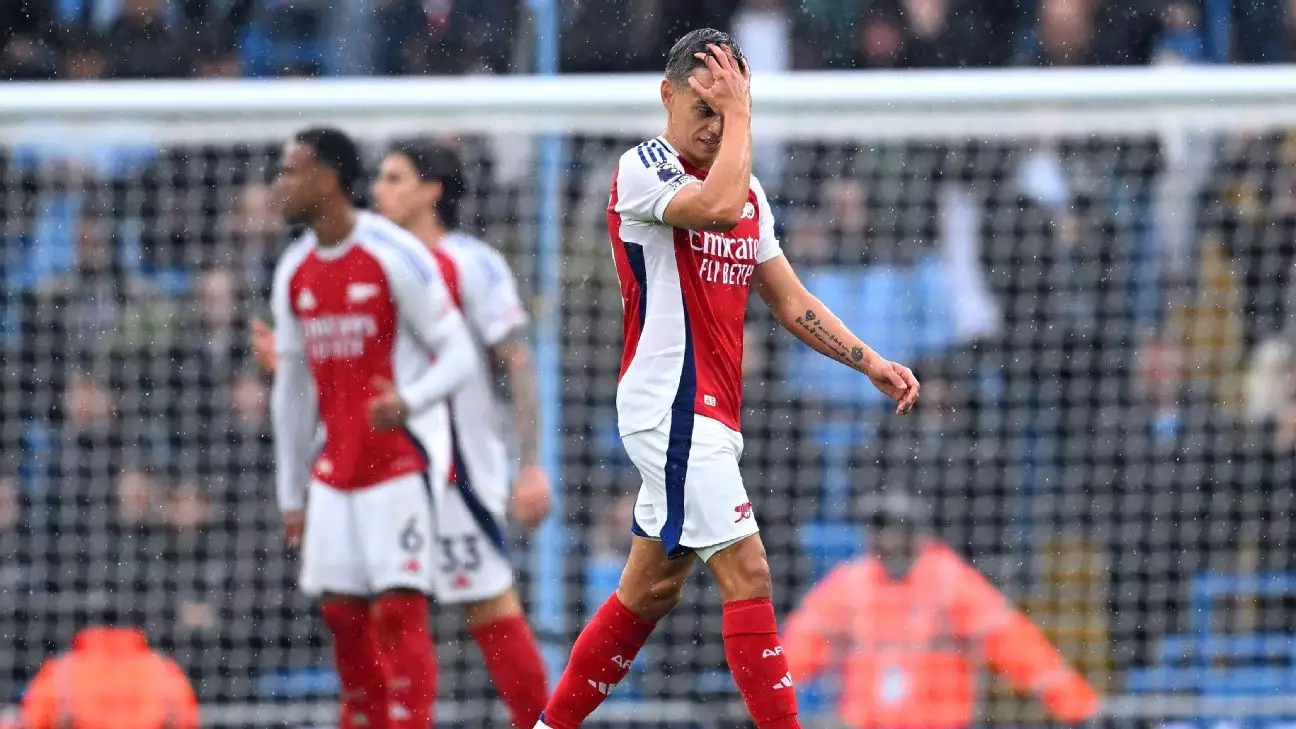The Premier League continues to deliver drama and intense competition, and the recent clash between Arsenal and Manchester City is a perfect example. In this match, which ended in a dramatic 2-2 draw, Arsenal’s head coach Mikel Arteta was left grappling not only with the outcome but also the implications of disciplinary decisions on the game. This article dives into the intricacies of the match, Arteta’s comments, and the broader context of player conduct in the Premier League.
From the opening second to the final whistle, the match encapsulated everything that fans love about football. Erling Haaland, the prolific striker for Manchester City, quickly put his team ahead with a goal in the ninth minute. However, Arsenal displayed remarkable determination, with Riccardo Calafiori and Gabriel Magalhães responding brilliantly to take a 2-1 lead into halftime. Just when it seemed the tide was in favor of the Gunners, fate dealt a cruel hand. Leandro Trossard’s second yellow card, issued in stoppage time, shifted the momentum squarely back towards City. His dismissal underscored persistent themes in the modern game regarding player discipline and the thin line that separates aggression from recklessness.
Arteta’s assertion of expecting around 100 games this season to feature a sending-off poses an intriguing discussion about the evolving nature of player behavior. The trend seems to suggest a growing pattern of disciplinary action, especially as players adapt to stricter refereeing standards. Trossard’s dismissal, following Declan Rice’s earlier red card against Brighton, raises questions about Arsenal’s composure under pressure. Losing a player changes not only formation but also morale, leading teams to either rise to the occasion or succumb to overwhelming pressure, as Arsenal witnessed in the second half as City ramped up their offensive efforts.
While Arteta praised his players for their resilience, it is critical to dissect how pivotal moments, like the sending-off, can dramatically impact a team’s performance in high-stakes matches. Arsenal’s stat line of zero shots in the second half is a damning portrayal of the psychological and tactical shifts necessitated by a red card.
Arteta’s diplomatic stance on discussing referee decisions is illustrative of the pressures faced by managers. He refrained from explicitly criticizing the officiating, instead acknowledging the complexity of player behavior on the pitch. His comments hint at a nuanced understanding of how each match presents unique challenges—not just from opponents but also from the referees’ interpretations of the rules. This highlights a broader issue in football where referees’ decisions, often scrutinized, can become a controversial focal point of discussions post-match.
Moreover, Arteta’s conclusion of wanting to focus on his team’s performance resonates strongly. Acknowledging that his players outperformed expectations despite adversity strengthens the case for positive ethos within the squad. Arteta’s pride in their battle against City’s heavily favored squad exemplifies the character and potential the current Arsenal team embodies.
The ongoing season is increasingly revealing trends in player discipline and stricter officiating across the league. Arteta’s anticipation of frequent games being played with numerical disadvantages begs deeper analytical questions about how teams prepare for and respond to such challenges. Furthermore, it suggests that as the season progresses, the strategic deployments will be critical—managers must adapt their tactics to safeguard against an ever-present threat of exclusion from the game via cards.
Arsenal’s positioning in the league—sitting fourth with 11 points after five matches—speaks to their competitive spirit despite setbacks. The integration of younger talents alongside seasoned players like Rice and Trossard is essential for building a squad capable of maintaining focus through adversity.
In reflections on the draw with Manchester City, it’s clear that Arsenal’s journey continues to be one of growth, resilience, and rapid adaptation. While the sending-off of players like Trossard can devastate a game’s momentum, it can also serve as a catalyst for team unity and motivation in striving for excellence. As the Premier League progresses, Arteta’s Arsenal will no doubt face further challenges, but their ability to respond decisively will define their season—and set the stage for future successes.

